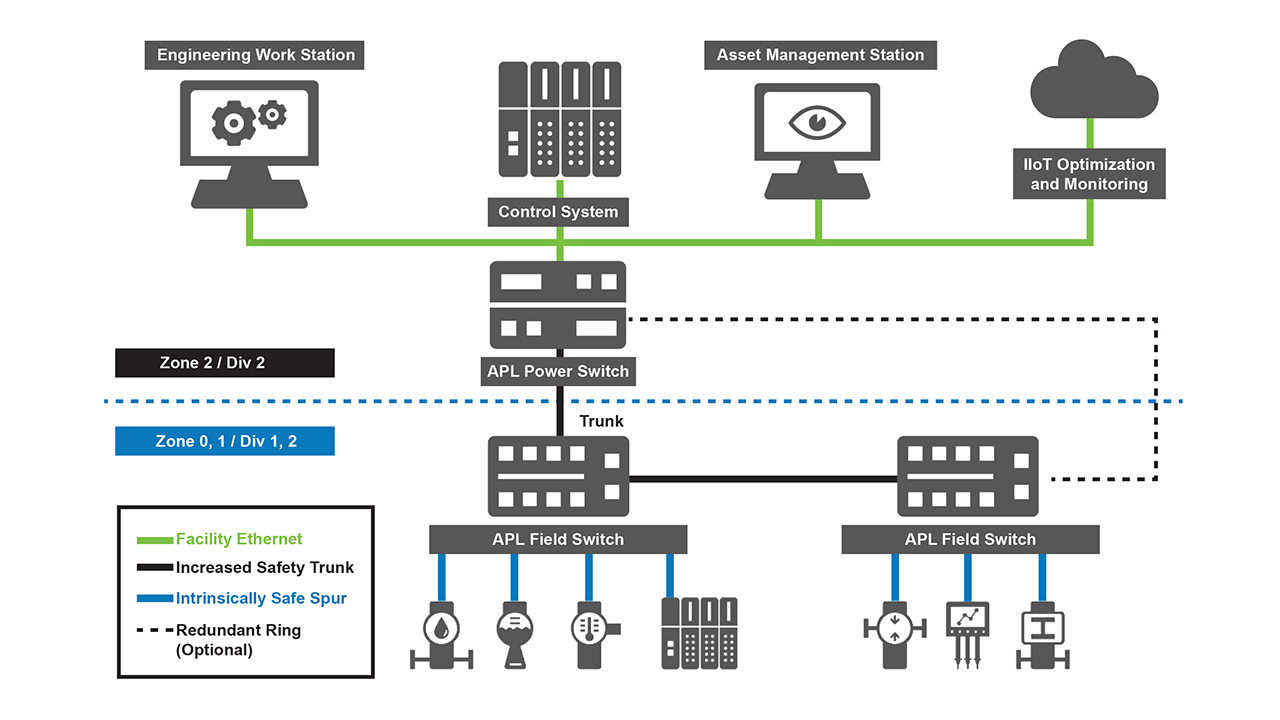Industry NewsJanuary 9, 2020
Joint update on an Advanced Physical Layer

Base standards approved as Emerson Joins APL Project group promoting developments for Industrial Ethernet to expand use of EtherNet/IP, HART-IP and PROFINET into hazardous locations in process industry.
FieldComm Group, ODVA and PI (Profibus & Profinet International) have announced that Emerson has joined the APL Project as an industry partner. Emerson joins 11 other industry partners to support the Project’s goal of developing an advanced physical layer for Industrial Ethernet, suitable for use in demanding applications in process instrumentation, named “Ethernet-APL”. In addition to the industry partners, APL Project members include three standards development organizations Profibus & Profinet International (PI), FieldComm Group and ODVA.
Significant updates in the development of “Ethernet-APL” have been achieved recently. First, the IEEE Std 802.3-2019 (10BASE-T1L) standard, which is the basis for Ethernet-APL and defines 10Mbit/s over one single twisted pair Ethernet with optional power delivery, was approved as an IEEE standard in November 2019 with publication of the standard expected in the coming months. This enhancement to the IEEE 802.3 standard for long-reach, single pair Ethernet will be the basis for the integration into the Ethernet protocol specifications, which is anticipated to be completed within organizations PI, FCG and ODVA in 2020.
Also, to ensure that Ethernet-APL supports intrinsic safety in hazardous areas, the IEC PT60079-47 technical committee is working on a technical specification for the 2-Wire Intrinsically Safe Ethernet (2-WISE). The technical committee agreed during the TC31 meetings in Nanyang (CN) that the principles defined in the Fieldbus Intrinsically Safe Concept are also suitable for the 2-WISE technical specification, including adaptations for the new physical layer. The perception is supported by successful tests executed at DEKRA Testing and Certification GmbH. The final technical specification (IEC TS 60079-47) is expected by the end of 2020.
Finally, Ethernet-APL technology has been tested successfully at BASF, incorporating first prototype devices from different industry partners. The following topics were in the focus: integration and configuration of the field devices, installation and commissioning of an Ethernet-APL network, mixed/multi-protocol operation, redundancy, device exchange and export of device diagnostic and configuration data in parallel to cyclic data exchange. All tests concluded successfully and demonstrated the advantages of Ethernet-APL as a physical layer in the field of process automation and an enabling technology for higher-level applications.


